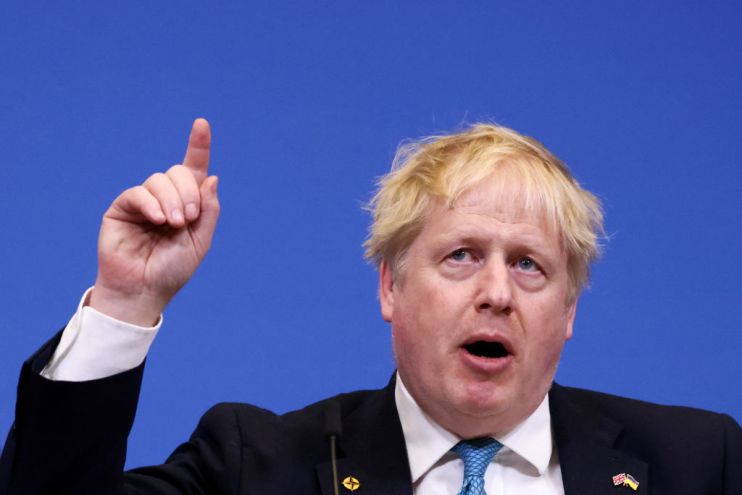Chief execs in Boris Johnson’s position would fall on their sword for rule-breaking

In the corporate world, there was a slightly different take on “party-gate” than the conventional wisdom of Westminster, which has waited for fines to be doled out to look again at allegations of wrongdoing during lockdowns. The invasion of Ukraine has, understandably, taken over as priority, but it should not be able to fly under the radar indefinitely.
Imagine a different scenario: a CEO in a FCA or PRA regulated global institution commissions an internal investigation relating to work events attended by them and their executive team.
The ensuing report finds “failures of leadership and judgement”, a drinking culture of “excessive consumption of alcohol” and a “serious failure to observe” standards of the organisation. The investigation and evidence is then passed onto the police, and the ensuing media furore causes a significant distraction for that exec’s ability to do the job. Even if the CEO says they “get it”, even if they say they will “fix it”, what repercussions would they face?
A performance review or formal disciplinary procedure? An investigation into breaking the FCA’s individual conduct rules? A fitness and propriety re-assessment or qualified regulatory reference? A FCA probe into the firm’s wider culture? Losing stakeholder and the public trust and confidence? These are just a few of the possibilities. Or would a CEO face all of them?
I’m not a puritan, but I don’t think I’m over-reacting. A regulator’s next step after all that would be to establish whether this was something particular to one “firm” or a “market” theme, making sure that actions and consequences were consistent across the “market”.
To err is human. But high standards of behaviour are expected by today’s leaders in the financial services industry and on the global stage where there is now intense scrutiny of individual conduct and professional standards by regulators, boards, workforces and the public.
The standards set by the board and accountability to shareholders (before we even look at the impact of the consumers of that service) would almost certainly prohibit any continued tenure of any CEO embroiled in such a situation.
Otherwise a firm would risk resultant damage to the company brand, including harm to staff morale, discipline and work ethics issues within the organisation as a whole.
The continuation in post of the financial services CEO would be completely untenable and in most circumstances they would have left the post far before this stage and certainly for far less.
Even if a CEO in the global arena was not involved, they could not avoid accountability and survive the subsequent recourse.
One only has to look at the fate of the highly regarded chairman of global banking giant Credit Suisse, Antonio Horta-Osorio, who resigned with immediate effect after breaking Covid quarantine rules. Or Jes Staley, an experienced pair of hands brought in to restore Barclays’s fortunes and shape a cultural transformation, who had to stand down during an ongoing FCA investigation into his relationship with Jeffrey Epstein.
In the current regulatory and stakeholder landscape, culture and “tone from the top” are at the forefront in intensely regulated FCA/PRA large financial institutions. It’s becoming hard to put a foot wrong and not face some form of consequences, particularly if you’re someone in the public eye.
Politicians are the first to challenge if miscreants are heads of government departments. The Head of Serious Fraud Office faced a grilling last month by the House of Commons public accounts committee over her future.
There are a growing number of examples of things that are now accepted at a macro economic government level which would never fly in the corporate world – at a firm or individual level.
So why are our politicians, prime ministers or presidents to be judged any differently?
